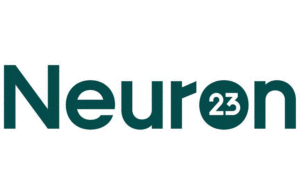 South San Francisco–based Neuron23 has started the first-in-human Phase 1 trial of NEU-723 for the treatment of Parkinson’s disease. NEU-723 is a highly potent and selective leucine-rich repeat kinase 2 (LRRK2) inhibitor. This clinical trial will evaluate the safety, tolerability and pharmacokinetics of NEU-723 in healthy volunteers.
South San Francisco–based Neuron23 has started the first-in-human Phase 1 trial of NEU-723 for the treatment of Parkinson’s disease. NEU-723 is a highly potent and selective leucine-rich repeat kinase 2 (LRRK2) inhibitor. This clinical trial will evaluate the safety, tolerability and pharmacokinetics of NEU-723 in healthy volunteers.
A targeted approach
The company has also collaborated with the diagnostics firm Qiagen to develop a companion diagnostic to identify a sub-population of Parkinson’s disease patients likely to respond to LRRK2 inhibitors.
“We wanted to try to narrow the population to those who would benefit and respond,” said Nancy Stagliano, chief executive officer of Neuron23. “So we built a machine learning model that can predict if patients respond to this drug or not.”
Stagliano says the targeted approach is “a big differentiator.” “To our knowledge, no one else has done this in neurodegenerative disease,” she said.
The company is advancing programs against TYK2, a JAK family protein that plays a role in pathological immune signaling. Parkinson’s disease is a brain disorder that causes unintended movements and worsens over time leading to difficulty in walking and talking. It is usually diagnosed based on medical history and neurological examination. There is currently no cure or disease-modifying therapies for the condition.
NEU-723 is the first of Neuron23’s programs to enter clinical development.
Disease-modifying potential
Neuron23 believes NEU-723 has strong disease-modifying potential and a higher therapeutic index compared to other candidates in development based on preclinical studies.
This randomized, double-blind, placebo-controlled, single-ascending dose, multiple-ascending dose, single-site clinical trial will evaluate the safety, tolerability, and pharmacokinetics of NEU-723 in adult healthy volunteers.
In addition to NEU-723, Neuron23 has several other LRRK2 candidates in its pipeline, including NEU-411 for Parkinson’s disease, which is set to enter the clinic in 2023. The company is also advancing brain-penetrant and peripherally restricted programs against TYK2, a JAK family protein involved in pathological immune signaling.
Researchers have linked the genetics for LRRK2 to not just Parkinson’s, but to some incidence of inflammatory bowel disease (IBD) as well. “Right now, we are not prioritizing [IBD], but there are interesting genetics in gut diseases that lead to increased risk,” Stagliano said. “You can imagine a systemic opportunity that can be used for those indications, and that’s something we have on the back burner, and we’re considering where to put it in our pipeline.”